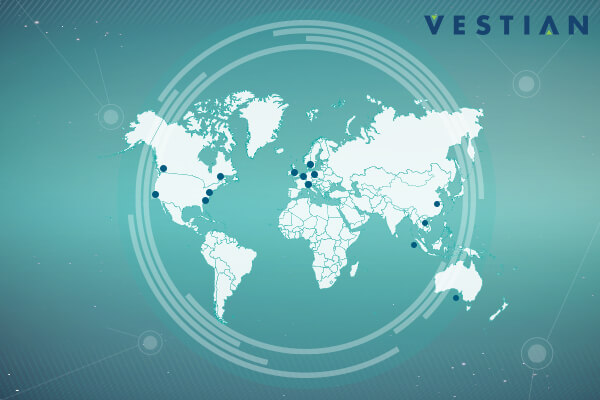Part 8 and the last of the Smart Cities series looks at Smart Cities worldwide.
88 Smart Cities are expected to be in existence by 2025 with 32 cities in Asia Pacific region, 31 cities in Europe, and 25 cities across the Americas. While new infrastructure is being created in the Asia Pacific region, Europe continues to focus on safety, security & sustainability measures towards enhanced living and US /America on improved transport & mobility.
Smart cities in Europe are built on six chief concepts: citizen focus, integrated planning, sustainable urban mobility, policy and regulations, integrated infrastructures & processes, and sustainable districts and built environments. Smart bins (with in-built sensors to monitor waste levels & clearance schedules) and smart parking systems that direct vehicles to free parking spaces and assist decongestion, are prevalent across most European cities today. Further in 2006, investments worth 52 million euros were made to construct Europe's largest wood biomass power plant in Vienna, Austria. Powering an entire city, the Vienna Biomass Power plant today exemplifies Europe’s technological approach towards renewable energy & sustainable initiatives. 100 projects in Barcelona targeted towards smart traffic lights, Smart LED streetlamps that contribute to 30% energy savings, electric cars and telecare services are a testament to Spain’s commitment to the sustainability drive. Copenhagen’s seawater abstraction system is a remarkable energy management technology that has resulted in 70% energy savings. Devised on the principles of thermodynamics, the seawater abstraction system recycles most of its waste while the rest is used to generate heat and safeguard the city against frigid Scandinavian climate.
Paris' project 'Madame Mayor, I have an idea,' focuses on citizens voting on their preference of projects. Meanwhile the UK government's 'FixMyStreet!' smart phone app allows citizens to click & upload photographs with names of areas / streets that need to be repaired. Authorities in London currently employ open data systems to solve urban transport challenges and are re-evaluating the commissioning of electric vehicles through the city to reduce its carbon footprint and safeguard its heritage buildings. Following the footsteps of Singapore, London has successfully implemented a congestion charging system using number plate recognition systems, intelligent traffic lights and smart parking as ways to ease the traffic situation in central London.
Emphasis of most Asian nations has been on creating new sustainable infrastructure. India has pledged to create 100 smart cities by 2025, cities such as Songdo in South Korea, Masdar City in UAE have been built from scratch with urban spaces, data monitoring devices, zero emissions and green energy sources. Hong Kong exercises the "Digital 21 Strategy," along with providing contact less card payment for public transport, restaurants, parking lots and vending machines. Meanwhile, Seoul’s revolutionary u-Healthcare service has placed the Korean capital amongst 100 existing smart cities in the world. Providing tele-health check-ups through smart devices, it is considered a boon to the elderly and the physically challenged.
The power efficient Online Electric Vehicle Technology (OLEV) is a wireless electric vehicle that addresses green and emission-free, sustainable transportation across key Korean cities, north & south Americas. Apart from effective transport, efficient waste management, composting & recycling systems has made San Francisco the first plastic-free city in the US. San Francisco has also forged lasting partnerships with the private sector to push green initiatives. Meanwhile Seattle offers tax rebates to residents, industrialists & corporate end-users for minimizing their carbon footprint & employing green technology. The “Array of Things” project is a vital step towards transforming Chicago into the “most data-driven government in the world.” 500 sensor nodes on the streets of Chicago are to collect data on everything from traffic, air quality, sound levels, temperature, and the water levels on streets and gutters. This information s will be publicly available and aid informed city planning decisions by the administration & citizens. Not just Chicago, Rio de Janeiro too has all its major public departments linked by technology.
While cities world over are upgrading themselves, Singapore has emerged as the world's first 'Smart Nation' chiefly due to its Smart Nation Platform that brings together data from a nationwide sensor network. 98% of government services in Singapore are online with apps for healthcare, transport & municipal services & water management systems.
According to Frost and Sullivan, global Smart Cities market is expected to reach around USD 1.56 trillion by 2020 with an average annual investment of USD 12 billion by 2025. Cities such as Accra, Curitiba, Eindhoven, Groningen, Luxembourg, Manila, Mannheim, Medellin, Osaka, Riga, Rotterdam, San Francisco, Songdo, Taipei, Toronto, Vancouver, Vilnius, Utrecht and Zagreb are few of the fast growing economies that possess the capacity to deliver sustainable schemes & technology, offering an abundance of growth and business opportunities.
Experts project urban centers to be responsible for over 80% of the wealth worldwide and their population to climb to 6.4 billion by 2050. It is no wonder, that worldwide, leaders have recognized the growing importance of cities and stepped forward to offer smarter solutions for a better tomorrow.
